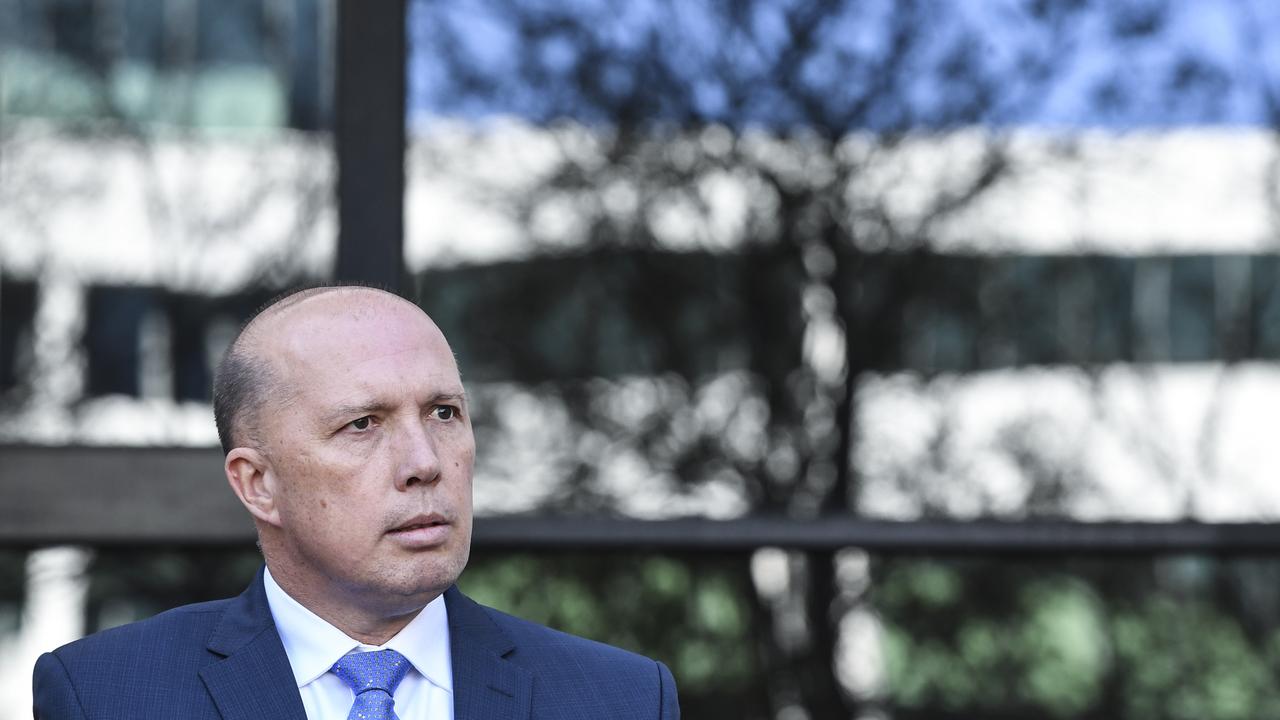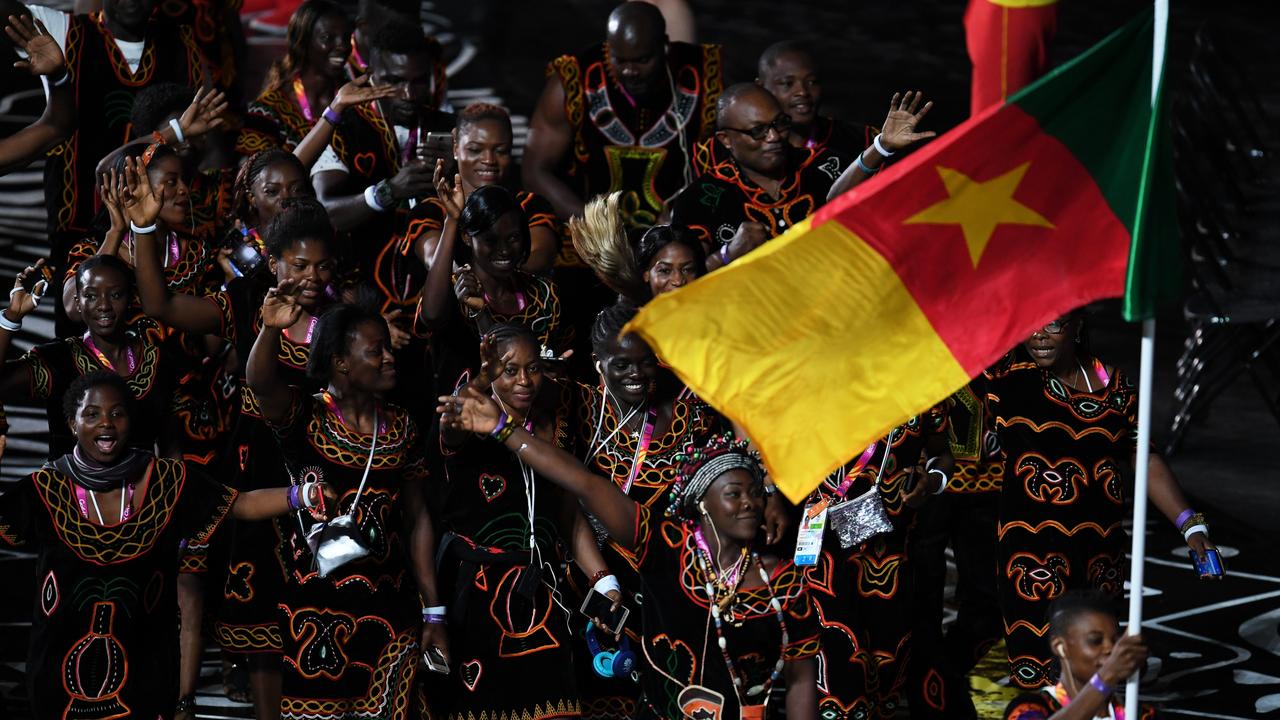Commonwealth Games 2018: Australia’s swimmers lap up a record gold haul
With eight gold medals on the final night of competition, the Australian swimming team sent the hometown crowd into orbit.
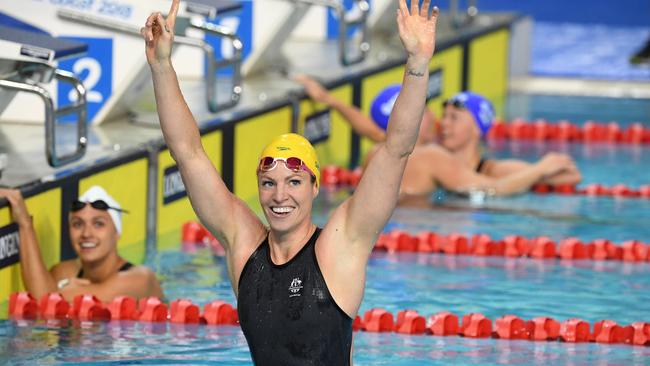
With eight gold medals on the final night of competition, the Australian swimming team sent the hometown crowd into orbit and the record-keepers into meltdown at the Gold Coast Commonwealth Games last night.
Mitch Larkin became the first Australian man since Ian Thorpe to win five gold medals at one Games, after collecting a surprise victory in the 200m individual medley and then leading off the victorious 4x100m medley relay.
His partner Emily Seebohm matched his heroics, winning gold medals in the 50m backstroke and 4x100m medley relay. The Australian team took both para swimming events and welcomed a new 1500m freestyle champion in Jack McLoughlin.
The final tally of 28 gold medals included seven in para swimming events. Australian swimmers won 73 medals — 21 silver and 24 bronze as well as the 28 gold. The haul is Australian swimming’s largest at a single Games, eclipsing the 57 medals won in Glasgow four years ago.
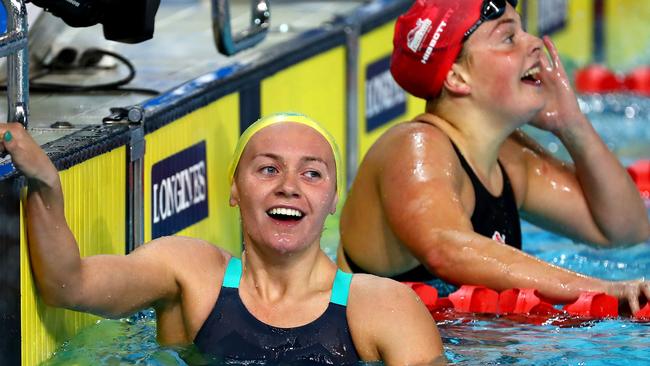
And never before have Australian swimmers won so many golds at the one Games — the previous benchmark was 24 in Manchester in 2002 and the 1994 Victoria Games in Canada.
Fittingly, it was Australia’s newest golden girl, 17-year-old Ariarne Titmus, who began the rush, winning her third gold medal of her Games debut in the 400m freestyle. She emulated the achievements of swimming royalty Tracey Wickham in winning the golden 400m and 800m freestyle double.
But merely winning the 400m gold medal last night was not enough for Australia’s new distance star.
After swimming personal-best times in both the 200m and 800m freestyle earlier in the meet, the Brisbane schoolgirl was intent on bringing down her national record of 4min 2.36sec as far as possible towards the four-minute barrier.
She stopped the clock in 4:00.93, just 24 hours after winning the gruelling 800m final, and is clearly capable of becoming the first Australian woman to smash through the barrier in more favourable circumstances.
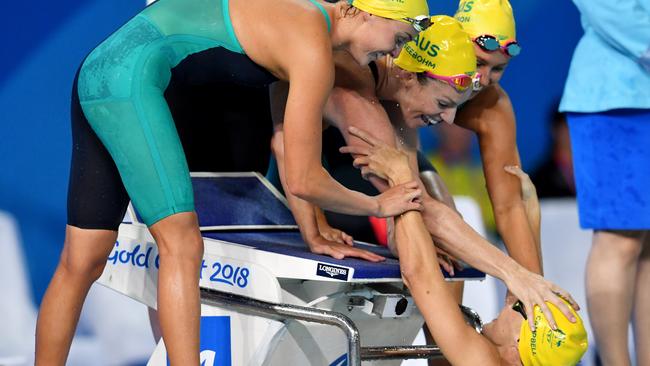
“I’m just glad I could do the country proud,’’ she said.
“The Terminator” revealed that she had felt sick with nerves before the race.
“I’ve never felt nerves like it before, and it wasn’t because I was scared of the result, I just didn’t want to fail on the expectations I’d set for myself,’’ she said.
“If I had swum 4:02 I would have failed because I went 1:54 earlier in the week (in the 200m) and translating that to a four-minute swim is perfect.’’
She was equally thrilled to have won a bet with her coach, Dean Boxall. “Dean said if I won he would get his hair in braids, so I’m really excited. He said if I went under four minutes he would shave his head but maybe we will save that for another time.’’
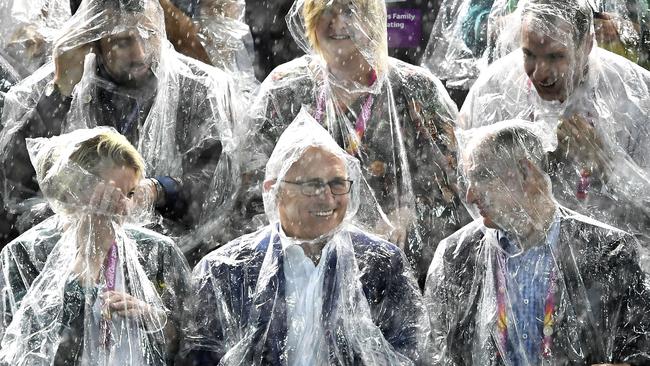
Titmus has now won three gold medals and a silver in her Games debut and set personal-best times in all three of her individual events that rank her among the very best in the world.
Backstroke star Seebohm followed up by winning Australia’s second gold medal of the night in the 50m backstroke. Seebohm had won silver in the 100m and bronze in the 200m and she completed the set by winning the gold medal in 27.78sec. She admitted it had given her “a little bit of satisfaction’’ to turn the tables on Canadian Kylie Masse, who won the 100m and 200m but finished second in the 50m in 27.82sec.
Fittingly for a woman who had won 14 medals across three Games, this was Australia’s 300th medal in the history of the event.
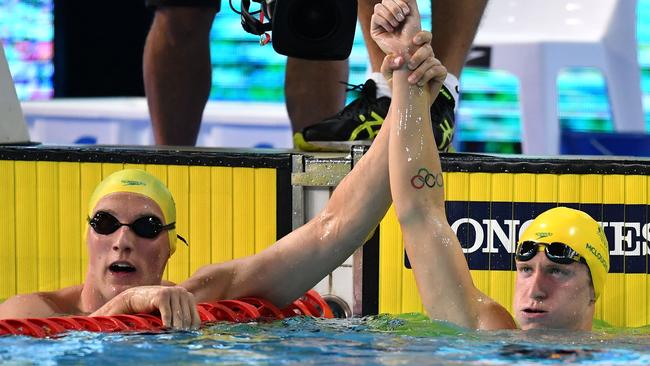
And medal number 15, which equals Susie O’Neill’s record for an Australian swimmer, was not far away. She led off the medley relay, handing over to breaststroker Georgia Bohl, butterflyer Emma McKeon and freestyler Bronte Campbell, who put in the second-fastest relay split in history (51.57sec) to fend off the challenge from Canada in a Games record of 3:54.36.
Commonwealth Games 2018 Day 6 live coverage: Kyle Chalmers produces amazing relay split



